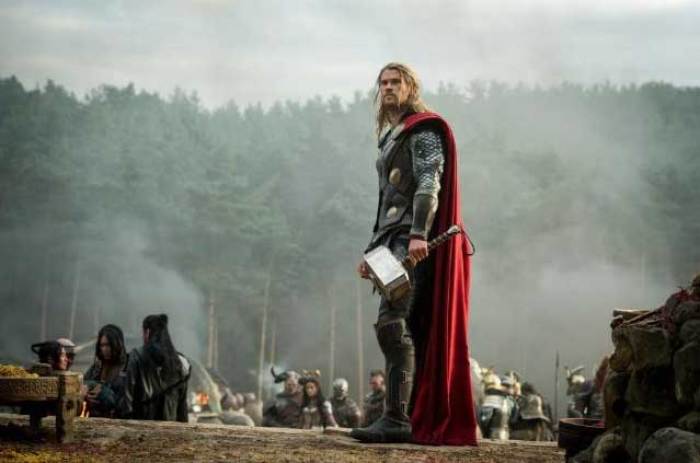'Thor: The Dark World' Wins at Box Office; Christian Reviewers Praise Biblical Themes, Compelling Characters

Warning: Spoilers
"Thor: The Dark World" soared at the box office to become Disney's biggest November opening ever, topping 2004's "The Incredibles," and reaching number nine for all films to come out this month. Christian reviewers explained its success as a function of truly compelling characters, who are lifelike and reflect biblical themes.
"The fascinating thing is these characters have been around for nearly fifty years, but they resonate with a modern day audience – the box office numbers were huge," Thomas Parham, co-chair and professor of Theater, Film, and Television at Azusa Pacific University, told The Christian Post in an interview on Tuesday. Parham said the film's story reflects the biblical tales of Jacob and Esau, Solomon, and creation.
Parham explained that, like in the story of Jacob and Esau, Thor features "a son who is entitled to the birthright and one who is not but wants it." The professor did not argue that the film was aiming to achieve that comparison, but rather that it succeeded at presenting a compelling sibling rivalry, which would compel biblically-literate Christians to think of the story of Jacob and Esau.
The film adds a twist, however. "In this film, Thor willingly gives up his birthright, and Loki steals it by impersonating his foster father and becomes ruler," Parham explained. The film ends with Thor surrendering the kingship, which he has finally earned, to a man he thinks is his father, only for the audience to learn that it is the trickster Loki in disguise.
Parham paraphrased Thor's words: "I would rather be a good man than a great king." Rather than rule in Asgaard – introduced as "the realm eternal" – Thor chooses a romance with the Earthly woman Jane Foster, along with a continual call to protect the nine realms against evil. The professor connected this surrender of power to the decision of King Solomon not to ask for power or gold or long life, but for wisdom.
The film's premise – that the world started in dark and chaos and the villains seek to return it to this primordial state – even reflects the biblical teaching that in the beginning, the earth was without form and void, Parham argued. Again, the professor did not claim that the filmmakers set out to make such comparisons, but rather that the material proved so compelling as to make biblical allusions "on accident."
Paul Asay, senior associate editor at Focus on the Family's review site, Plugged In, said Thor and Loki resembled Cain and Abel more than Jacob and Esau. "When you look at Loki, he feels very upset because he feels like Thor gets all the breaks. Dad loves him best, Loki doesn't feel like he's part of the family," Asay argued, pointing to a review on his private blog.
The reviewer even claimed that God's words to Cain – "If you do what is right, you will be accepted. If you do not do what is right, sin will conquer you" – could just as easily apply to Loki. "You can make an argument that Loki is that Cain character – the guy who's cast out because of what he did."
Like Parham, however, Asay did not claim to know the filmmaker's intent. Rather, he acknowledged the power of the art – "All of us, at times, can feel a little isolated and long for that connection," he explained. "I think that Loki, in some ways, represents that."
Just as Thor and Odin always offer Loki forgiveness and the possibility to come back into the family, so God "always has a hand out, but we can reject it like it's not really meant for us," the reviewer argued.
Asay also noted that the characters in "Thor: The Dark World" are very unlike the ordinary men and women who watch their story on the screen. Thor, Loki, and Odin live extremely long lives and possess extraordinary powers beyond many imaginations. Nevertheless, "I think the emotions at play are very relatable," he said. That, rather than any premeditated conclusions, is why biblical allusions fit.
"The Bible is talking about life – the Bible is talking about all of us," Asay said.
Alex Wainer, associate professor of Communication and Media Studies at Palm Beach Atlantic University in South Florida, disagreed that there were "any strong connections to Christianity per se," but he remarked that the film does not make any anti-Christian claims.
"I doubt there's anything here of an alarming nature with dangerous worldview implications," Wainer explained, "as it makes plain that this is a lot of comic book derring-do, melodrama, and fun."




























